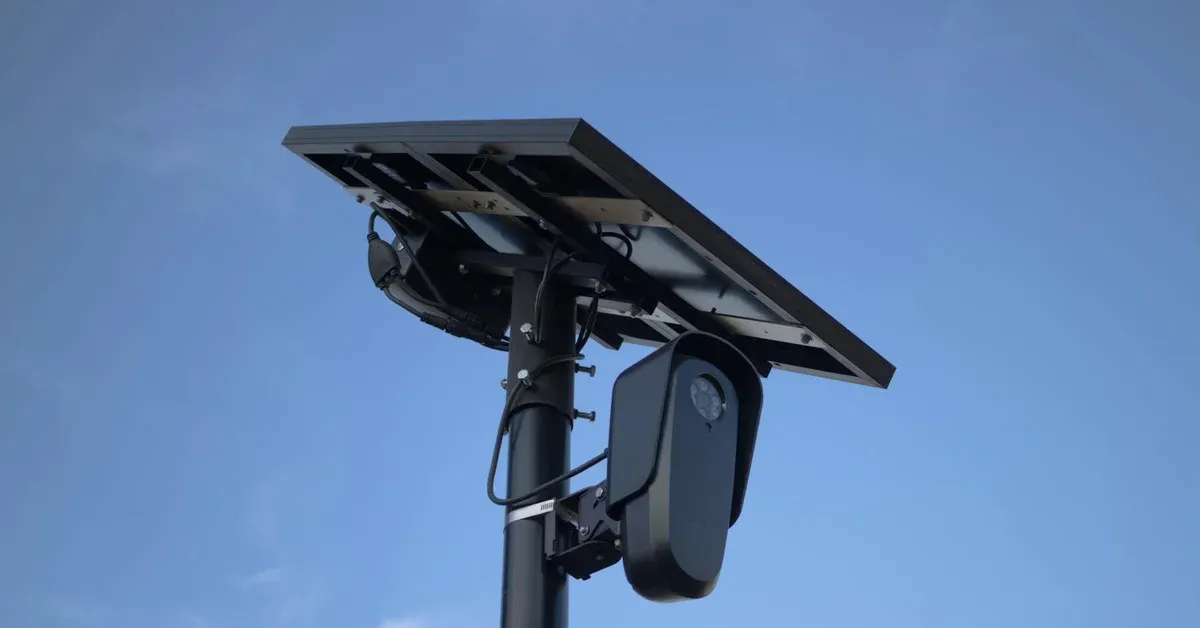
Picture this: you get tracked 526 times in four months. Not by some creepy stalker, but by local police who are just watching where your car goes. This isn’t science fiction anymore. It’s happening right now as Flock Safety’s license plate cameras spread across American cities like digital wildfire. Police departments love these cameras because they supposedly fight crime. But privacy advocates are sounding the alarm. They say we’re turning regular people into suspects just for driving to work.
Building America’s Biggest Surveillance Network
Flock Safety dominates the roadside surveillance game. They sell cloud-connected cameras that read license plates to police departments and private companies nationwide. Take Norfolk, Virginia. Hundreds of these cameras now watch every car that drives by, recording where you go and when you go there.
Here’s the scary part: Flock lets police departments share all this data with each other. Your local sheriff can now peek at surveillance data from across the country. This creates a massive network where even tiny police departments can access a huge database of driver surveillance information. Every license plate becomes part of a potential watch list.
Government Says You Have No Privacy on Public Roads
People are fighting back in court, claiming these cameras violate the Fourth Amendment. You know, the one that protects us from unreasonable searches. But the federal government just jumped in to defend cities using these cameras.
Their argument is pretty simple and pretty chilling: Americans can’t expect privacy on public roads. So tracking hundreds of thousands of innocent people without a warrant? Totally fine, according to them.
This directly conflicts with groups like the Institute for Justice, who recently launched a nationwide campaign against unlimited license plate surveillance. They’re fighting for stronger Fourth Amendment protections against warrantless surveillance.
Flock Wants to Watch More Than Just License Plates
License plates are just the beginning. Flock keeps adding new surveillance features that push boundaries even further.
Their new “Raven” product can detect “human distress” through audio. Think screaming or other sounds of trouble. This means potentially constant audio surveillance in public spaces.
Even more concerning: Flock lets private companies “add vehicles to Flock Hotlists.” This gives corporations access to the same surveillance network as police. Private security can now tap into a massive tracking system that monitors people’s daily movements.
We’re looking at a world where your morning commute generates a permanent, searchable record that both police and private companies can access.
Some Cities Are Fighting Back
Not everyone’s rolling over for this surveillance expansion. Cities like Denver and Austin have complained about federal officials accessing their Flock data without permission. State officials are also pushing back against federal agents tapping into locally collected information.
But legislative efforts face tough opposition. California tried to regulate license plate readers, but the governor vetoed the bill. This happened despite reports of police misusing data and sharing it inappropriately with out-of-state agencies.
The big question remains: how much data should local governments collect on innocent people? And who gets to see it?
We’re fighting over what “reasonable expectation of privacy” means when everything we do creates digital tracks. As government surveillance technology gets more powerful, protecting our basic rights becomes harder and more important.
This is really about whether you can drive down a public street without your movements becoming part of a permanent government file. That’s a fight worth having.